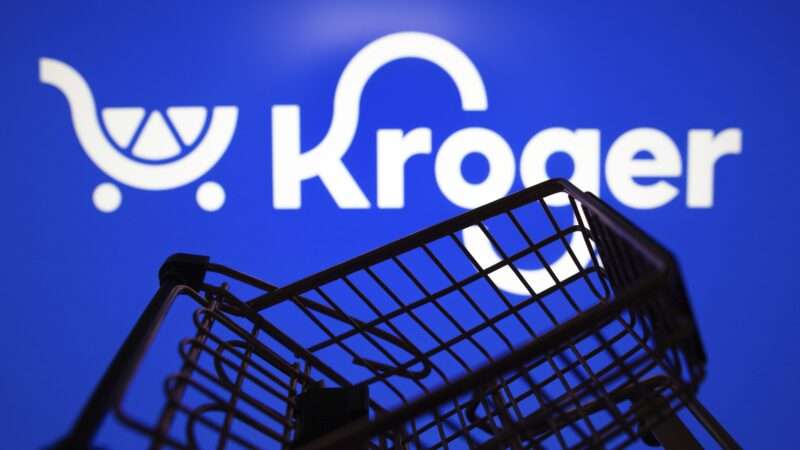
The merger between grocery store giants Kroger and Albertsons was halted by Judge Adrienne Nelson of the U.S. District Court for the District of Oregon on Tuesday. Albertsons promptly sued Kroger on Wednesday, alleging that the company provided "insufficient divestiture proposals," per The Wall Street Journal. This costly antitrust litigation involving the retail grocery stores—not their mergers—harms consumers by diverting capital away from consumers and shareholders.
In October 2022, Albertsons announced its plan to be acquired by Kroger for nearly $25 billion for the purpose of, among other things, "increasing their scale such that they could compete against mass retailers such as Walmart, Amazon, and Costco," according to Nelson's opinion. Nonetheless, the Federal Trade Commission (FTC) promptly began its investigation and filed suit under the FTC Act and Clayton Act in February 2024.
The FTC's stated motivation for challenging the merger was to avoid "higher prices for groceries and other essential household items for millions of Americans." But increased grocery prices are more appropriately attributed to the inflation experienced during the COVID-19 pandemic: Food price inflation was 6.3 and 10.4 percent in 2021 and 2022, and only 2.7 and 2.4 percent in 2023 and 2024, according to data from the Bureau of Labor Statistics. If prices were increasing due to increased market power, grocery stores' profit should be increasing. The opposite is true for Albertsons: In its fiscal year ending in February, Albertsons' profits decreased by 14 percent, reports The Wall Street Journal.
Even if they merge, Kroger and Albertsons would still only account for 9 percent of overall grocery sales, as C. Jarrett Dieterle has noted in Reason, belying the FTC's concerns that the merger would grant them significant market power. The FTC's overly narrow definition of the grocery market is the actual cause of concern: The Commission's definition includes traditional supermarkets and "hypermarkets" like Walmart and Target, but excludes Amazon and Costco, the second and third largest grocery retailers, respectively.
Considering Kroger's and Albertsons' single-digit shares of the properly defined market, and competition from other grocers not recognized by the FTC, the merger was more likely to save Albertsons from insolvency, not afford them enough market power to increase prices. Kroger and Albertsons projected the merger would create $500 million in cost savings—at least some of which would be passed onto consumers. The pair also planned to invest $1.3 billion to improve customer service, according to Nate Scherer, a policy analyst with the American Consumer Institute, a nonprofit research institute dedicated to the promotion of consumer welfare.
Kroger operates 2,700 grocery stores across 35 states and Washington, D.C., including Harris Teeter, and employs 430,000 workers, 65 percent of whom are unionized. Albertsons operates 2,269 stores across 34 states and the District of Columbia, including Safeway. Over 70 percent of its 285,000 employees are unionized. The FTC alleged that Kroger and Albertsons, once merged, "would gain increased leverage over workers and their unions—to the detriment of workers." The International Center for Law & Economics regards these concerns as dubious, considering the highly competitive nature of retail labor markets and that the stores' unions' collective-bargaining agreements would likely counterbalance "any attempted exercise of monopsony power by the merged firm."
The companies proposed divesting 579 stores in overlapping markets to C&S Wholesale Grocers. The Wall Street Journal notes that C&S only operates around two dozen retail grocery stores, which raised concerns about its ability to run these divested stores competitively. However, C&S is not primarily a retailer; it supplies around 7,500 grocery stores, employs 14,000 people, and "emerged as the divestiture buyer after a competitive bidding process conducted by the defendants," according to Nelson.
The FTC's prevention of the Kroger-Albertsons merger will not benefit consumers, but protect larger and more entrenched grocers. Instead of miring retail grocers in expensive legal costs, the FTC should've taken into account the plethora of nonretail grocers competing with Kroger, Albertsons, and recognized that their merger would have been pro-competitive.
The post Kroger-Albertsons Merger Halted by the Federal Trade Commission appeared first on Reason.com.







